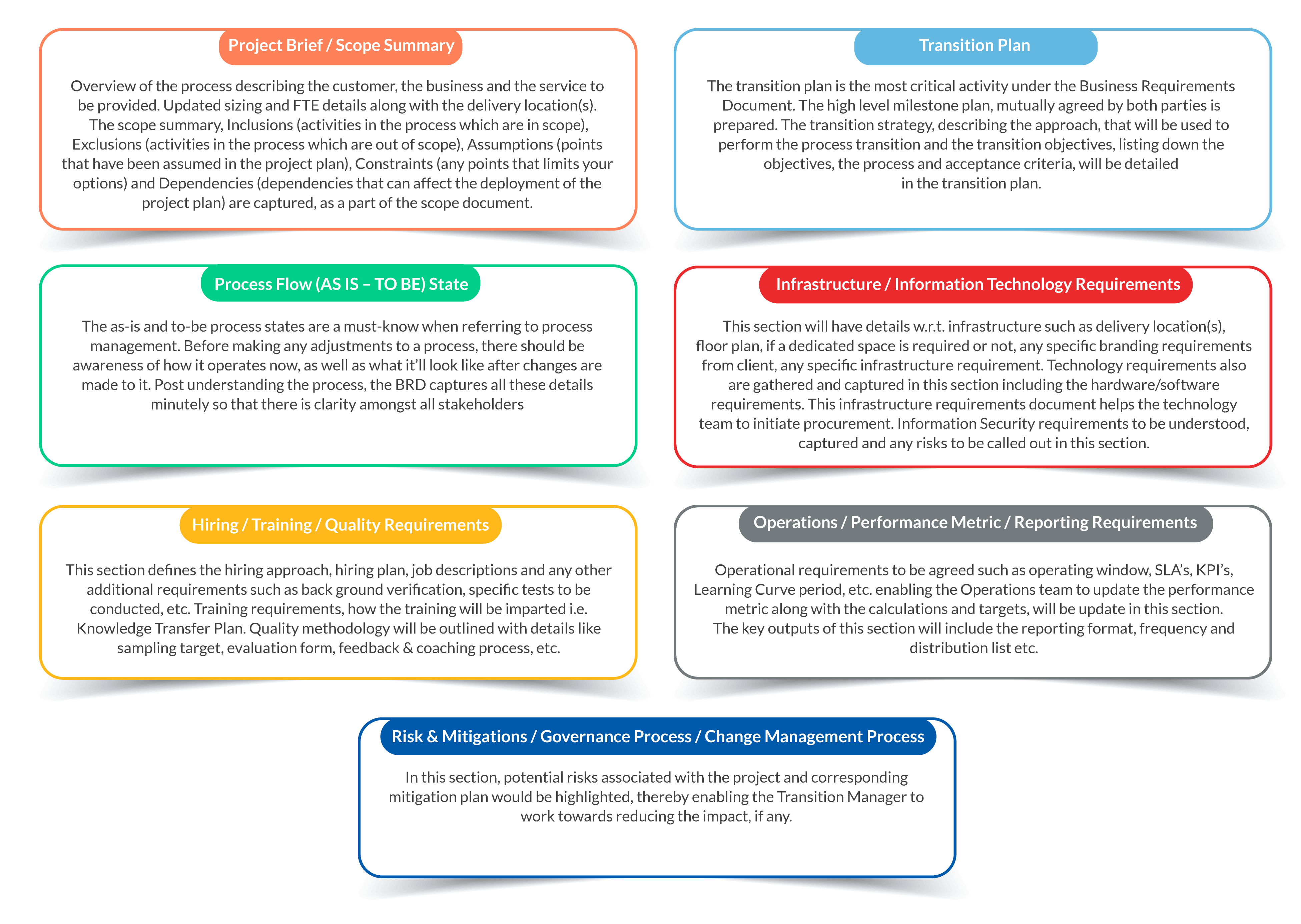Hexaware Acquires SMC Squared, a Leader in Building Global Capability Centers-Rolls Out GCC 2.0 Service Line. Learn More
This website uses cookies. By continuing to browse the site, you are agreeing to our use of cookies
Learn how to succeed with Effective Scope Management
Business Process Services
September 25, 2018
Effective Scope Management is a key aspect in any Business Transition. This ensures that the project is delivered within the allocated time and budget. This is also a tricky activity, considering the dynamic nature of projects. Hexaware’s well-defined and robust transition framework ensures that the scope is effectively captured and documented and is managed effectively throughout the course of transition. Insights on effective scope management are presented below. However, to begin with, it is important to understand ‘what is scope’ and what is meant by ‘scope management’.
What is Project Scope and its Management…?
Scope refers to the detailed set of deliverables or features of a project. You will have to define and agree on the scope, so that managing the project becomes easier.
PMBOK® defines Project Scope as the “The work that needs to be accomplished to deliver a product, service, or result with the specified features and functions.”
Project Scope Management refers to the set of processes that ensure a project’s scope is accurately defined and mapped. Scope Management techniques enable project managers and supervisors to allocate just the right amount of work necessary to successfully complete a project, primarily controlling what is and what is not a part of the project’s scope.
How is the Scope Captured / Defined…?
There are key areas that are needed to be focused, to make sure that the project’s scope is defined and managed effectively.
Defining the scope of a project entails identifying the project’s purpose and deliverables as well as the resources (basis their skillset) that are required to execute the task(s). Project scope is part of project planning activity phase and it involves requirements gathering as well as documenting list of specific project goals, deliverables, tasks, activities, costs and timelines.
There are different ways of acquiring information associated with the project. At Hexaware, all these critical details are captured through a requirement capture workshop in one single document called the Business Requirement Document (BRD). Throughout the project, this documentation helps the project team to remain focused and keeps a tab on all activities. BRD also guides the project team for making decisions about change requests during the course of the project.
However, before the team participates in the requirement’s gathering workshop, they begin the scope understanding activity by circulating a Business Discovery Document which is usually done before creating the BRD. The business discovery document is shared with the client team once the project kick offs. It helps in capturing the initial / high level client information and supports the Transition Manager to discuss the details during the migration workshop.
Business Requirement Document (BRD) – The Bible of Transition @ Hexaware
Why is the BRD known as the Bible of Transitions, at Hexaware? Simply put, this document is the one stop shop for the Transition manager and the project team and it captures all relevant, critical and important information that is required during project implementation, such as:

Hexaware also follows a robust governance practise which includes weekly/monthly governance calls, meetings with internal & external stakeholders. There are weekly progress reports that give an insight on the health of the project covering 4 key parameters i.e. People, Process, Technology & Legal. Any change during the project phase post agreement and sign off scope (through BRD) would have to go through a pre-defined and agreed change management process. Governance and Change Management processes are discussed and agreed with the client team during the workshop and documented in the BRD.
The project team at Hexaware focuses on the Hawk Eye concept and ensures that no information is missed which may have an impact on the project. Other documents as part of scope managements are the process SOP’s which outline the standard procedure that will be followed during Transition or BAU (Business as Usual) state.
Benefits of Scope Management…
The importance of scope management is as Well quoted by Auren Hoffman – “How to manage a project: Limit it in scope. Make it simple. Get success. Then iterate.”
Successful scope management is possible, if all stakeholders are aware of the project, its requirements, its risks and mitigations, operations management requirements, etc. Hexaware’s transition team captures all requirements in a single document, to ensure success and make sure that information is easily available to project team.
Scope management ensures a project’s scope is accurately defined and mapped and enables project managers to allocate proper resources to complete the project in a timely manner. Key benefits of BRD at Hexaware:
- Articulates what the project involves so that all stakeholders can understand
- Provides a roadmap that managers can use to assign tasks, schedule work and budget appropriately
- Defines a common objective for all project team members
- Prevents projects (particularly complex ones), from extending the timelines and delay Go Live
To summarise, the reason why many projects fail is because the project success is not defined at the start. The scope of the project is the most difficult and important aspect of project management. It is also crucial for project managers and their teams to work together and emphasise on clarity of inputs which would reduce the chances of incomplete and changing requirements, further avoiding project failures.
To quote an example of effective scope management followed at Hexaware, is during the transition of Global visa processing service provider. Hexaware’s effective scope management and business transition plan helped in consolidating 9 contact centres, into 4 delivery centres in 3 phases.
Related Blogs

From Manual to Machine: Maximizing Cost Savings with Intelligent Process Automation
- Business Process Services

Achieving Cost Efficiency Through Global Business Services Strategy
- Business Process Services

Generative AI for Marketing: The Future of Cost-effective Engagement
- Generative AI
- Business Process Services

Unlocking Generative AI for Hyper-personalized Customer Experiences
- Generative AI
- Business Process Services

Executive Administration Services: BFSI’s Right-hand Partner
- Generative AI
- Business Process Services

Generative AI in Customer Service: Going Beyond Traditional Chatbots
- Generative AI
- Business Process Services

Generative AI for Content Creation: The Future of Content Ops
- Business Process Services
- Generative AI
Fund Services Back Office Digitalization: A Transformation Long Overdue?
- Business Process Services

Mastering Customer Service Experience: Strategies for Success
- Business Process Services

The Rise of Omnichannel Customer Service: Unlocking Excellence in Customer Care
- Business Process Services

Ready to Pursue Opportunity?
Every outcome starts with a conversation







